Law No. 599 of July 24, 2000, issuing the Penal Code, was amended by Law No. 813 of July 2, 2003.
Abstract:The Penal Code contains 19 part and 476 articles altogether. The Colombia Criminal Code (law 599 of 24 July 2000) established an ample range of corruption offences in articles 397 to 434, such as public embezzlement, bribery, undue signing of contracts, traffic in influence, illicit enrichment, abuse of power, most of which are punished with imprisonment, fines and in habilitation. Article 433 of the Criminal Code establishes transnational bribery, which is normally referred to as bribery of foreign public officials.
TITULO XV
DELITOS CONTRA LA ADMINISTRACION PUBLICA
CAPITULO PRIMERO
Del peculado
Artículo 397. Peculado por apropiación. El servidor público que se apropie en provecho suyo o de un tercero de bienes del Estado o de empresas o instituciones en que éste tenga parte o de bienes o fondos parafiscales, o de bienes de particulares cuya administración, tenencia o custodia se le haya confiado por razón o con ocasión de sus funciones, incurrirá en prisión de seis (6) a quince (15) años, multa equivalente al valor de lo apropiado sin que supere el equivalente a cincuenta mil (50.000) salarios mínimos legales mensuales vigentes, e inhabilitación para el ejercicio de derechos y funciones públicas por el mismo término.
Si lo apropiado supera un valor de doscientos (200) salarios mínimos legales mensuales vigentes, dicha pena se aumentará hasta en la mitad. La pena de multa no superará los cincuenta mil salarios mínimos legales mensuales vigentes.
Si lo apropiado no supera un valor de cincuenta (50) salarios mínimos legales mensuales vigentes la pena será de cuatro (4) a diez (10) años e inhabilitación para el ejercicio de derechos y funciones públicas por el mismo término y multa equivalente al valor de lo apropiado.
Artículo 398. Peculado por uso. El servidor público que indebidamente use o permita que otro use bienes del Estado o de empresas o instituciones en que éste tenga parte, o bienes de particulares cuya administración, tenencia o custodia se le haya confiado por razón o con ocasión de sus funciones, incurrirá en prisión de uno (1) a cuatro (4) años e inhabilitación para el ejercicio de derechos y funciones públicas por el mismo término.
Artículo 399. Peculado por aplicación oficial diferente. El servidor público que dé a los bienes del Estado o de empresas o instituciones en que éste tenga parte, cuya administración, tenencia o custodia se le haya confiado por razón o con ocasión de sus funciones, aplicación oficial diferente de aquella a que están destinados, o comprometa sumas superiores a las fijadas en el presupuesto, o las invierta o utilice en forma no prevista en éste, en perjuicio de la inversión social o de los salarios o prestaciones sociales de los servidores, incurrirá en prisión de uno (1) a tres (3) años, multa de diez (10) a cincuenta (50) salarios mínimos legales mensuales vigentes, e inhabilitación para el ejercicio de derechos y funciones públicas por el mismo término.
Artículo 400. Peculado culposo. El servidor público que respecto a bienes del Estado o de empresas o instituciones en que éste tenga parte, o bienes de particulares cuya administración, tenencia o custodia se le haya confiado por razón o con ocasión de sus funciones, por culpa dé lugar a que se extravíen, pierdan o dañen, incurrirá en prisión de uno (1) a tres (3) años, multa de diez (10) a cincuenta (50) salarios mínimos legales mensuales vigentes e inhabilitación para el ejercicio de funciones públicas por el mismo término señalado.
Artículo 401. Circunstancias de atenuación punitiva. Si antes de iniciarse la investigación, el agente, por sí o por tercera persona, hiciere cesar el mal uso, reparare lo dañado o reintegrare lo apropiado, perdido, extraviado, o su valor, la pena se disminuirá en la mitad.
Si el reintegro se efectuare antes de dictarse sentencia de segunda instancia, la pena se disminuirá en una tercera parte.
Cuando el reintegro fuere parcial, el juez deberá, proporcionalmente, disminuir la pena en una cuarta parte.
Artículo 402. Omisión del agente retenedor o recaudador. El agente retenedor o autorretenedor que no consigne las sumas retenidas o autorretenidas por concepto de retención en la fuente dentro de los dos (2) meses siguientes a la fecha fijada por el Gobierno Nacional para la presentación y pago de la respectiva declaración de retención en la fuente o quien encargado de recaudar tasas o contribuciones públicas no las consigne dentro del término legal, incurrirá en prisión de tres (3) a seis (6) años y multa equivalente al doble de lo no consignado sin que supere el equivalente a cincuenta mil (50.000) salarios mínimos legales mensuales vigentes.
En la misma sanción incurrirá el responsable del impuesto sobre las ventas que, teniendo la obligación legal de hacerlo, no consigne las sumas recaudadas por dicho concepto, dentro de los dos (2) meses siguientes a la fecha fijada por el Gobierno Nacional para la presentación y pago de la respectiva declaración del impuesto sobre las ventas.
Tratándose de sociedades u otras entidades, quedan sometidas a esas mismas sanciones las personas naturales encargadas en cada entidad del cumplimiento de dichas obligaciones.
Parágrafo. El agente retenedor o autorretenedor, responsable del impuesto a las ventas o el recaudador de tasas o contribuciones públicas, que extinga la obligación tributaria por pago o compensación de las sumas adeudadas, según el caso, junto con sus correspondientes intereses previstos en el Estatuto Tributario, y normas legales respectivas, se hará beneficiario de resolución inhibitoria, preclusión de investigación, o cesación de procedimiento dentro del proceso penal que se hubiera iniciado por tal motivo, sin perjuicio de las sanciones administrativas a que haya lugar.
Artículo 403. Destino de recursos del tesoro para el estímulo o beneficio indebido de explotadores y comerciantes de metales preciosos. El servidor público que destine recursos del tesoro para estimular o beneficiar directamente o por interpuesta persona, a los explotadores y comerciantes de metales preciosos, con el objeto de que declaren sobre el origen o procedencia del mineral precioso, incurrirá en prisión de dos (2) a cinco (5) años, en multa de cien (100) a quinientos (500) salarios mínimos legales mensuales vigentes, e inhabilitación para el ejercicio de derechos y funciones públicas por cinco (5) años.
En la misma pena incurrirá el que reciba con el mismo propósito los recursos del tesoro, o quien declare producción de metales preciosos a favor de municipios distintos al productor.
CAPITULO SEGUNDO
De la concusión
Artículo 404. Concusión. El servidor público que abusando de su cargo o de sus funciones constriña o induzca a alguien a dar o prometer al mismo servidor o a un tercero, dinero o cualquier otra utilidad indebidos, o los solicite, incurrirá en prisión de seis (6) a diez (10) años, multa de cincuenta (50) a cien (100) salarios mínimos legales mensuales vigentes, e inhabilitación para el ejercicio de derechos y funciones públicas de cinco (5) a ocho (8) años.
CAPITULO TERCERO
Del cohecho
Artículo 405. Cohecho propio. El servidor público que reciba para sí o para otro, dinero u otra utilidad, o acepte promesa remuneratoria, directa o indirectamente, para retardar u omitir un acto propio de su cargo, o para ejecutar uno contrario a sus deberes oficiales, incurrirá en prisión de cinco (5) a ocho (8) años, multa de cincuenta (50) a cien (100) salarios mínimos legales mensuales vigentes, e inhabilitación para el ejercicio de derechos y funciones públicas de cinco (5) a ocho (8) años.
Artículo 406. Cohecho impropio. El servidor público que acepte para sí o para otro, dinero u otra utilidad o promesa remuneratoria, directa o indirecta, por acto que deba ejecutar en el desempeño de sus funciones, incurrirá en prisión de cuatro (4) a siete (7) años, multa de cincuenta (50) a cien (100) salarios mínimos legales mensuales vigentes, e inhabilitación para el ejercicio de derechos y funciones públicas de cinco (5) a ocho (8) años.
El servidor público que reciba dinero u otra utilidad de persona que tenga interés en asunto sometido a su conocimiento, incurrirá en prisión de dos (2) a cinco (5) años, multa de treinta (30) a cincuenta (50) salarios mínimos legales mensuales vigentes, e inhabilitación para el ejercicio de derechos y funciones públicas por cinco (5) años.
Artículo 407. Cohecho por dar u ofrecer. El que dé u ofrezca dinero u otra utilidad a servidor público, en los casos previstos en los dos artículos anteriores, incurrirá en prisión de tres (3) a seis (6) años, multa de cincuenta (50) a cien (100) salarios mínimos legales mensuales vigentes, e inhabilitación para el ejercicio de derechos y funciones públicas de cinco (5) a ocho (8) años.
CAPITULO CUARTO
De la celebración indebida de contratos
Artículo 408. Violación del régimen legal o constitucional de inhabilidades e incompatibilidades. El servidor público que en ejercicio de sus funciones intervenga en la tramitación, aprobación o celebración de un contrato con violación al régimen legal o a lo dispuesto en normas constitucionales, sobre inhabilidades o incompatibilidades, incurrirá en prisión de cuatro (4) a doce (12) años, multa de cincuenta (50) a doscientos (200) salarios mínimos legales mensuales vigentes, e inhabilitación para el ejercicio de derechos y funciones públicas de cinco (5) a doce (12) años.
Artículo 409. Interés indebido en la celebración de contratos. El servidor público que se interese en provecho propio o de un tercero, en cualquier clase de contrato u operación en que deba intervenir por razón de su cargo o de sus funciones, incurrirá en prisión de cuatro (4) a doce (12) años, multa de cincuenta (50) a doscientos (200) salarios mínimos legales mensuales vigentes, e inhabilitación para el ejercicio de derechos y funciones públicas de cinco (5) a doce (12) años.
Artículo 410. Contrato sin cumplimiento de requisitos legales. El servidor público que por razón del ejercicio de sus funciones tramite contrato sin observancia de los requisitos legales esenciales o lo celebre o liquide sin verificar el cumplimiento de los mismos, incurrirá en prisión de cuatro (4) a doce (12) años, multa de cincuenta (50) a doscientos (200) salarios mínimos legales mensuales vigentes, e inhabilitación para el ejercicio de derechos y funciones públicas de cinco (5) a doce (12) años.
CAPITULO QUINTO
Del tráfico de influencias
Artículo 411. Tráfico de influencias de servidor público. El servidor público que utilice indebidamente, en provecho propio o de un tercero, influencias derivadas del ejercicio del cargo o de la función, con el fin de obtener cualquier beneficio de parte de servidor público en asunto que éste se encuentre conociendo o haya de conocer, incurrirá en prisión de cuatro (4) a ocho (8) años, multa de cien (100) a doscientos (200) salarios mínimos legales mensuales vigentes, e inhabilitación para el ejercicio de derechos y funciones públicas de cinco (5) a ocho (8) años.
CAPITULO SEXTO
Del enriquecimiento ilícito
Artículo 412. Enriquecimiento ilícito. El servidor público que durante su vinculación con la administración, o quien haya desempeñado funciones públicas y en los dos años siguientes a su desvinculación, obtenga, para sí o para otro, incremento patrimonial injustificado, siempre que la conducta no constituya otro delito, incurrirá en prisión de seis (6) a diez (10) años, multa equivalente al doble del valor del enriquecimiento sin que supere el equivalente a cincuenta mil (50.000) salarios mínimos legales mensuales vigentes, e inhabilitación para el ejercicio de derechos y funciones públicas de seis (6) a diez (10) años.
CAPITULO SEPTIMO
Del prevaricato
Artículo 413. Prevaricato por acción. El servidor público que profiera resolución, dictamen o concepto manifiestamente contrario a la ley, incurrirá en prisión de tres (3) a ocho (8) años, multa de cincuenta (50) a doscientos (200) salarios mínimos legales mensuales vigentes, e inhabilitación para el ejercicio de derechos y funciones públicas de cinco (5) a ocho (8) años.
Artículo 414. Prevaricato por omisión. El servidor público que omita, retarde, rehuse o deniegue un acto propio de sus funciones, incurrirá en prisión de dos (2) a cinco (5) años, multa de diez (10) a cincuenta (50) salarios mínimos legales mensuales vigentes, e inhabilitación para el ejercicio de derechos y funciones públicas por cinco (5) años.
Artículo 415. Circunstancia de agravación punitiva. Las penas establecidas en los artículos anteriores se aumentarán hasta en una tercera parte cuando las conductas se realicen en actuaciones judiciales o administrativas que se adelanten por delitos de genocidio, homicidio, tortura, desplazamiento forzado, desaparición forzada, secuestro, secuestro extorsivo, extorsión, rebelión, terrorismo, concierto para delinquir, narcotráfico, enriquecimiento ilícito, lavado de activos, o cualquiera de las conductas contempladas en el título II de este Libro.
CAPITULO OCTAVO
De los abusos de autoridad y otras infracciones
Artículo 416. Abuso de autoridad por acto arbitrario e injusto. El Servidor público que fuera de los casos especialmente previstos como conductas punibles, con ocasión de sus funciones o excediéndose en el ejercicio de ellas, cometa acto arbitrario e injusto, incurrirá en multa y pérdida del empleo o cargo público.
Artículo 417. Abuso de autoridad por omisión de denuncia. El servidor público que teniendo conocimiento de la comisión de una conducta punible cuya averiguación deba adelantarse de oficio, no dé cuenta a la autoridad, incurrirá en multa y pérdida del empleo o cargo público.
La pena será de dos (2) a cuatro (4) años de prisión si la conducta punible que se omitiere denunciar sea de las contempladas en el delito de omisión de denuncia de particular.
Artículo 418. Revelación de secreto. El servidor público que indebidamente dé a conocer documento o noticia que deba mantener en secreto o reserva, incurrirá en multa y pérdida del empleo o cargo público.
Si de la conducta resultare perjuicio, la pena será de uno (1) a tres (3) años de prisión, multa de quince (15) a sesenta (60) salarios mínimos legales mensuales vigentes, e inhabilitación para el ejercicio de derechos y funciones públicas por cinco (5) años.
Artículo 419. Utilización de asunto sometido a secreto o reserva. El servidor público que utilice en provecho propio o ajeno, descubrimiento científico, u otra información o dato llegados a su conocimiento por razón de sus funciones y que deban permanecer en secreto o reserva, incurrirá en multa y pérdida del empleo o cargo público, siempre que la conducta no constituya otro delito sancionado con pena mayor.
Artículo 420. Utilización indebida de información oficial privilegiada. El servidor público que como empleado o directivo o miembro de una junta u órgano de administración de cualquier entidad pública, que haga uso indebido de información que haya conocido por razón o con ocasión de sus funciones y que no sea objeto de conocimiento público, con el fin de obtener provecho para sí o para un tercero, sea éste persona natural o jurídica, incurrirá en multa y pérdida del empleo o cargo público.
Artículo 421. Asesoramiento y otras actuaciones ilegales. El servidor público que ilegalmente represente, litigue, gestione o asesore en asunto judicial, administrativo o policivo, incurrirá en multa y pérdida del empleo o cargo público.
Si el responsable fuere servidor de la rama judicial o del Ministerio Público la pena será de prisión de uno (1) a tres (3) años, e inhabilitación para el ejercicio de derechos y funciones públicas por cinco (5) años.
Artículo 422. Intervención en política. El servidor público que ejerza jurisdicción, autoridad civil o política, cargo de dirección administrativa, o se desempeñe en los órganos judicial, electoral, de control, que forme parte de comités, juntas o directorios políticos, o utilice su poder para favorecer o perjudicar electoralmente a un candidato, partido o movimiento político, incurrirá en multa y pérdida del empleo o cargo público.
Se exceptúan de lo dispuesto en el inciso anterior los miembros de las corporaciones públicas de elección popular.
Artículo 423. Empleo ilegal de la fuerza pública. El servidor público que obtenga el concurso de la fuerza pública o emplee la que tenga a su disposición para consumar acto arbitrario o injusto, o para impedir o estorbar el cumplimiento de orden legítima de otra autoridad, incurrirá en prisión de uno (1) a cuatro (4) años, multa diez (10) a cincuenta (50) salarios mínimos legales mensuales vigentes e inhabilitación para el ejercicio de derechos y funciones públicas por cinco (5) años, siempre que la conducta no constituya delito sancionado con pena mayor.
Artículo 424. Omisión de apoyo. El agente de la fuerza pública que rehuse o demore indebidamente el apoyo pedido por autoridad competente, en la forma establecida por la ley, incurrirá en prisión de uno (1) a cuatro (4) años e inhabilitación para el ejercicio de derechos y funciones públicas por cinco (5) años.
CAPITULO NOVENO
De la usurpación y abuso de funciones públicas
Artículo 425. Usurpación de funciones públicas. El particular que sin autorización legal ejerza funciones públicas, incurrirá en prisión de uno (1) a dos (2) años.
Artículo 426. Simulación de investidura o cargo. El que únicamente simulare investidura o cargo público o fingiere pertenecer a la fuerza pública, incurrirá en multa.
Artículo 427. Circunstancia de agravación punitiva. Las penas señaladas en los anteriores artículos serán de uno (1) a cuatro (4) años cuando la conducta se realice con fines terroristas.
Artículo 428. Abuso de función pública. El servidor público que abusando de su cargo realice funciones públicas diversas de las que legalmente le correspondan, incurrirá en prisión de uno (1) a dos (2) años e inhabilitación para el ejercicio de derechos y funciones públicas por cinco (5) años.
CAPITULO DECIMO
De los delitos contra los servidores públicos
Artículo 429. Violencia contra servidor público. El que ejerza violencia contra servidor público, para obligarlo a ejecutar u omitir algún acto propio de su cargo o a realizar uno contrario a sus deberes oficiales, incurrirá en prisión de uno (1) a tres (3) años.
Artículo 430. Perturbación de actos oficiales. El que simulando autoridad o invocando falsa orden de la misma, o valiéndose de cualquier otra maniobra engañosa, trate de impedir o perturbar la reunión o el ejercicio de las funciones de las corporaciones o autoridades legislativas, jurisdiccionales o administrativas, o de cualquier otra autoridad pública, o pretenda influir en sus decisiones o deliberaciones, incurrirá en multa.
El que realice la conducta anterior por medio de violencia incurrirá en prisión de tres (3) a cinco (5) años.
CAPITULO ONCE
De la utilización indebida de información
y de influencias derivadas del ejercicio de función pública
Artículo 431. Utilización indebida de información obtenida en el ejercicio de función pública. El que habiéndose desempeñado como servidor público durante el año inmediatamente anterior utilice, en provecho propio o de un tercero, información obtenida en calidad de tal y que no sea objeto de conocimiento público, incurrirá en multa.
Artículo 432. Utilización indebida de influencias derivadas del ejercicio de función pública. El que habiéndose desempeñado como servidor público durante el año inmediatamente anterior utilice, en provecho propio o de un tercero, influencias derivadas del ejercicio del cargo o de la función cumplida, con el fin de obtener ventajas en un trámite oficial, incurrirá en multa.
Artículo 433. Soborno transnacional. El nacional o quien con residencia habitual en el país y con empresas domiciliadas en el mismo, ofrezca a un servidor público de otro Estado, directa o indirectamente, cualquier dinero, objeto de valor pecuniario u otra utilidad a cambio de que éste realice u omita cualquier acto en el ejercicio de sus funciones, relacionado con una transacción económica o comercial, incurrirá en prisión de seis (6) a diez (10) años y multa de cincuenta (50) a cien (100) salarios mínimos legales mensuales vigentes.
Artículo 434. Asociación para la comisión de un delito contra la administración pública. El servidor público que se asocie con otro, o con un particular, para realizar un delito contra la administración pública, incurrirá por ésta sola conducta en prisión de uno (1) a tres (3) años, siempre que la misma no constituya delito sancionado con pena mayor.
Si interviniere un particular se le impondrá la misma pena.



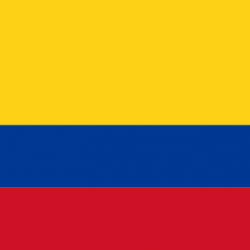
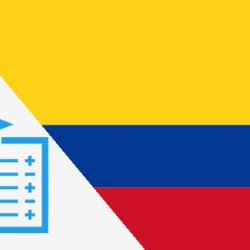
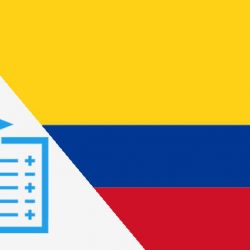
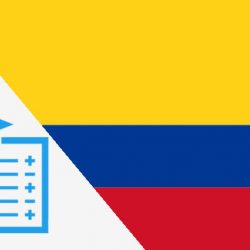
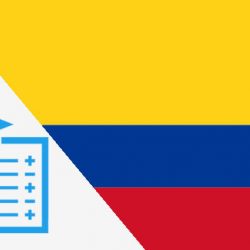
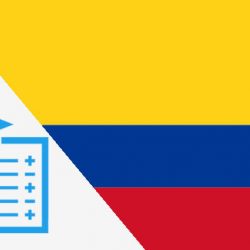
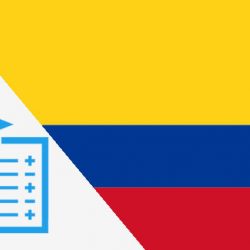
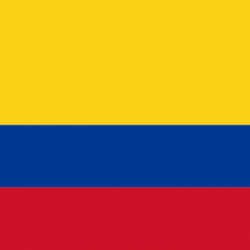
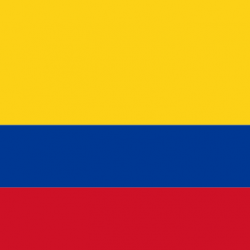
 We will not leak your personal information
We will not leak your personal information